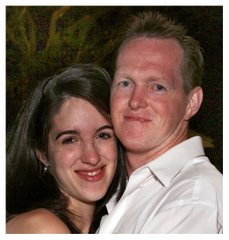This past week included the two introductory courses to Module B at SMU: Organizational Behavior on Thursday night and Executive Statistics on Saturday morning. The tone set in both is dramatically different than the Module A courses.
Neither class will be as intuitively challenging as the Module A courses. Organizational Behavior should be a welcome respite for many students from the rigors of Economics and Accounting. Statistics is also straight forward, but it will require a highly attentive student.
Discrete math is limited in scope to algebraic functions -- we covered "solving for 'X'" using means and extremes during the first class. Square roots, natural logarithms, "e," etc.: This is the language of statistics. Words like binomial and equations named after their creators are common. Because this is the type of math every student is required to do, be prepared for lots of out-of-class work and number crunching.
Hopefully, you will get a professor that shares my professor's view: statistics needs to be applicable. Her examples are frought with practical application and dogma free.
Organizational behavior boils down to involvement in class and staying on top of reading. There are two primary approaches to management courses: Case Study and Theory. Harvard is known for being the best case study school and whatever b-school you attend, you can be sure you will be tasked with working a Harvard Business School case study at least once. Schools that lean to theory have you read lots of "How to.." material. SMU happens to be a hybrid between the two.
I prefer the case study methodology. A constant exposure to crises and situations is a great way to learn and evaluate what should be done from a real world perspective. At least I'm getting some of that.
Monday, March 19, 2007
Monday, March 5, 2007
Two down, Twenty-Two to Go
I spent Monday and Wednesday night last week completing my first two courses with the two most comprehensive exams I have ever taken.
Three hours were allotted to each exam: I used two and a half hours for accounting and two hours for economics. More than 70 percent of the class was still around when I left submitted my exam and I learned that the professor allowed an additional 10 minutes and still needed to collect incomplete finals from some students.
The accounting final was the most comprehensive exam I have ever taken. We were handed two booklets: a 16 page exam and a 20 page financial statement packet. We covered everything we discussed in class:
And while the inclination for many of us when we start relating exam war stories is to complain about how much of a beating they are, I thoroughly enjoyed the process. I find myself falling into the True Believer mentality that over exagerates exasperation with being aggressively tested; I enjoyed the thorough exercise. I feel confident that I can create said financial statements and provide intuitive insightful analysis of a firm's activity. And that's what I'm paying for in my program.
The economics exam was challenging, but not as comprehensive. This was due to extenuating circumstances with our professor. The difference between this exam and undergraduate economics exam is the format. Undergraduate economics exams focus more on the principles from a vacuum perspective: in a perfectly competitive or pure monopoly market, what happens to the "fill in the blank" curve when "X" happens? The questions on this exam were a little more abstract and derived from real world examples. This exam stretched me to think in realistic terms, not just theoretical.
My first module is behind me. I already have prep work assigned for my next two classes. I am currently on Spring Break in Colorado and I'm somewhat anxious to get back to the grind. I will probably end up blogging about how to disassociate during these break times. But not now.
Three hours were allotted to each exam: I used two and a half hours for accounting and two hours for economics. More than 70 percent of the class was still around when I left submitted my exam and I learned that the professor allowed an additional 10 minutes and still needed to collect incomplete finals from some students.
The accounting final was the most comprehensive exam I have ever taken. We were handed two booklets: a 16 page exam and a 20 page financial statement packet. We covered everything we discussed in class:
- the Balance Sheet;
- the Income Statement (Statement of Operations);
- the Cash Flow Statement;
- Ratio Analysis; and
- Revenue Recognition.
And while the inclination for many of us when we start relating exam war stories is to complain about how much of a beating they are, I thoroughly enjoyed the process. I find myself falling into the True Believer mentality that over exagerates exasperation with being aggressively tested; I enjoyed the thorough exercise. I feel confident that I can create said financial statements and provide intuitive insightful analysis of a firm's activity. And that's what I'm paying for in my program.
The economics exam was challenging, but not as comprehensive. This was due to extenuating circumstances with our professor. The difference between this exam and undergraduate economics exam is the format. Undergraduate economics exams focus more on the principles from a vacuum perspective: in a perfectly competitive or pure monopoly market, what happens to the "fill in the blank" curve when "X" happens? The questions on this exam were a little more abstract and derived from real world examples. This exam stretched me to think in realistic terms, not just theoretical.
My first module is behind me. I already have prep work assigned for my next two classes. I am currently on Spring Break in Colorado and I'm somewhat anxious to get back to the grind. I will probably end up blogging about how to disassociate during these break times. But not now.
Subscribe to:
Comments (Atom)
